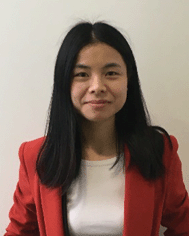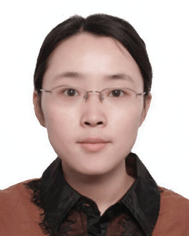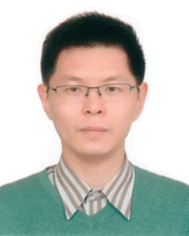Nanoscale Horizons 2018 Outstanding Paper awards
Nanoscale Horizons publishes exceptionally high quality, innovative nanoscience from top researchers in the field. From this year onwards, we would like to take the opportunity to recognize some of the outstanding work published in the journal, as well as the authors behind those articles, by annually awarding an Outstanding Paper prize.In order to choose the most outstanding papers of 2018, we put together a shortlist of articles published during the year based on the science presented and the article metrics including average article downloads and citations, and Altmetrics. The shortlist was reviewed by the journal's Editorial and Advisory Board members. Based on this, and on the high quality of content we published throughout the year, we have chosen to award not only our most Outstanding Paper, but also a runner-up and an Outstanding Review in 2018.
We would like to introduce you to the winners of the 2018 Outstanding Paper awards and hope that you enjoy reading their outstanding articles as much as we did. All articles will be free to access until the end of May.†
Please join us in congratulating our winners.
Nanoscale Horizons Outstanding Paper 2018:
None of us is the same as all of us: resolving the heterogeneity of extracellular vesicles using single-vesicle, nanoscale characterization with resonance enhanced atomic force microscope infrared spectroscopy (AFM-IR)Sally Yunsun Kim, Dipesh Khanal, Priyanka Tharkar, Bill Kalionis and Wojciech Chrzanowski*
DOI: 10.1039/C8NH00048D
In this paper, the authors propose an innovative approach using resonance enhanced atomic force microscope infrared spectroscopy to identify the nanoscale structural composition of extracellular vesicles (EVs). The particular strength of this methodology is that it is a label-free and ultra-high sensitivity technique that has the power to measure individual EV heterogeneity. New insights gained by this method into EV heterogeneity will have a profound impact not only on basic understanding of EV biology but also on disease diagnostics and the emerging area of EV-therapies.
Dr Sally Yunsun Kim (first author) is currently an Academic Visitor in the National Heart & Lung Institute at Imperial College London and a recipient of the European Respiratory Society/European Molecular Biology Organization Long-Term Research Fellowship. Throughout her early research career, she has been striving to contribute to developing innovative strategies for the treatment of lung diseases that are currently incurable. With a desire to develop an expertise in pulmonary regenerative medicine, she has actively developed collaborations with experts in various fields and undertook short-term research secondments in internationally renowned labs. So far, her achievements have been recognised by numerous awards and high-impact publications. Her current research in the Dean laboratory aims to develop an innovative pharmacological approach to drive tissue repair in lung diseases. She has been a registered pharmacist (Australia) since 2011.
Sally's former PhD supervisor, Associate Professor Wojciech Chrzanowski is a Deputy Director at Sydney Nano Institute and Head of the Nanomedicine and Nano-Bio-Characterisation laboratory in the Sydney School of Pharmacy. He is a biomedical engineer who translates the science of extracellular vesicles and bio-characterisation at nanoscale to human applications. His work addresses a desperate need for effective technologies that regulate stem cells to promote desired tissue repair. Wojciech's laboratory pioneers the use of nanoscale characterisation techniques to understand cellular communication and functionality of tissues. Wojciech's contribution to the field is exemplified by over 140 peer-reviewed publications, four patents and over 50 invited talks and seminars. The translation potential of his work is demonstrated by several grant funding opportunities he received to move his research discoveries into the realms of mainstream medicine.
Nanoscale Horizons Outstanding Paper runner-up 2018:
A location- and sharpness-specific tactile electronic skin based on staircase-like nanowire patchesShu Gong, Yan Wang, Lim Wei Yap, Yunzhi Ling, Yunmeng Zhao, Dashen Dong, Qianqian Shi, Yiyi Liu, Hemayet Uddin and Wenlong Cheng*
DOI: 10.1039/C8NH00125A
The article reports on a tactile electronic skin sensor based on staircase-like vertically aligned gold nanowires. With a back-to-back linear or spiral assembly of two staircase structures into a single sensor, the authors were able to recognize pressure in a highly location-specific manner for both non-stretched and stretched states opening up a new route to highly specific second-skin-like tactile sensors for wearable sensing applications.
Dr Shu Gong (first author) is a Research Fellow at Monash University, Australia, under the supervision of Professor Wenlong Cheng. He received his BS from Central South University, China, in 2011, and his PhD from Monash University in 2017. At Monash University, his research interests include the development of soft electronics based on nanomaterials.
Dr Yan Wang (first author) is currently a research fellow at the University of Tokyo, Japan. She received her PhD majoring in Chemical Engineering from Monash University in 2018 under the supervision of Professor Wenlong Cheng, and her BS from Wuhan Textile University in China in 2011. Her research interests mainly focus on the development of stretchable electronics, including stretchable conductors, wearable sensors and soft energy devices.
Wenlong Cheng is a professor and director of research in the Department of Chemical Engineering at Monash University, Australia. He is also an Ambassador Tech Fellow in the Melbourne Centre for Nanofabrication. He received his PhD from the Chinese Academy of Sciences in 2005 and his BS from Jilin University, China, in 1999. He held positions in the Max Planck Institute of Microstructure Physics and the Department of Biological and Environmental Engineering of Cornell University before joining Monash University in 2010. His research interest lies at the Nano-Bio Interface, particularly plasmonic nanomaterials, wearable bioelectronics, DNA nanotechnology, nanoparticle anticancer theranostics and electronic skins. He is currently the editor for the Elsevier journal Inorganic Chemistry Communications, and an Editorial Board member for several journals including the Cell press journal iScience.
Nanoscale Horizons Outstanding Review 2018:
Multifunctional nanozymes: enzyme-like catalytic activity combined with magnetism and surface plasmon resonanceJiangjiexing Wu, Sirong Li and Hui Wei*
DOI: 10.1039/C8NH00070K
The review highlights the progress in the field of nanozymes based on two representative types of multifunctional nanozyme – iron oxide nanomaterials with magnetic properties and metal nanomaterials with surface plasmon resonance – including current and future applications as well as challenges.
Dr Jiangjiexing Wu (first author) received her bachelor degree (2009) and PhD degree (2014) from Tianjin University under the supervision of Professors Wei Li and Yi Lu. She then joined Professor Hui Wei's lab as a research scientist. Her research focuses on the design and synthesis of functional nanomaterials (such as nanozymes) and their biomedical applications.
Hui Wei is a Professor at Nanjing University and a Fellow of the Royal Society of Chemistry. He received his BS degree from Nanjing University (advisor: Professor Xinghua Xia) and PhD degree from Changchun Institute of Applied Chemistry, Chinese Academy of Sciences (advisor: Professor Erkang Wang). He joined Professors Yi Lu's and Shuming Nie's groups for two PostDocs before he started his independent career at Nanjing University. His research interests are focused on the design and synthesis of functional nanomaterials (such as nanozymes) and the development of new methodologies for analytical and biomedical applications.
Last but not least, we would like to take this opportunity to thank all of the authors who have trusted us with publishing their work in Nanoscale Horizons over the last years.Professor Harold Craighead, Editorial Board Chair
Dr Michaela Mühlberg, Managing Editor
†Free to access through a free RSC publishing personal account.
| This journal is © The Royal Society of Chemistry 2019 |







